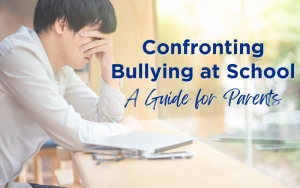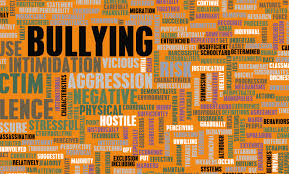How to Handle Bullying in Schools: A Guide for Parents
BEST CAREER COUNSELLOR FOR STUDENTS IN DELHI NCR
Bullying in schools is a pervasive problem that affects children of all ages. As a parent, it can be challenging to know how to approach the issue when your child is either the victim or the perpetrator. However, it’s important to address bullying promptly, as it can have lasting consequences on your child’s mental, emotional, and physical well-being. This guide is designed to help parents understand what bullying is, recognize signs of bullying, and learn effective strategies for dealing with the situation.
Top career counseling for students in North Delhi: Rohini, Pitampura, and Shalimar Bagh
Understanding Bullying
Bullying is more than just a disagreement between children or a fleeting moment of unkind behavior. It is a repeated, intentional act that causes harm to another person. Bullying can take many forms, including:
- Physical bullying: Hitting, pushing, or any other physical aggression.
- Verbal bullying: Name-calling, teasing, or making hurtful jokes.
- Social bullying: Excluding someone from a group, spreading rumors, or manipulating friendships.
- Cyberbullying: Bullying through digital platforms, such as social media, texts, or emails.
Understanding the various forms of bullying is the first step in recognizing when your child might be involved in or affected by bullying.
Signs That Your Child Might Be Getting Bullied
As a parent, you may not always be aware that your child is being bullied. However, there are several signs that could indicate that something is wrong. Pay attention to:
-
Changes in Behavior: If your child becomes more withdrawn, anxious, or irritable, it could be a sign that something is affecting their emotional well-being.
-
Avoidance of School: A sudden reluctance to go to school or complaints of headaches, stomachaches, or other physical symptoms could indicate that your child is trying to avoid the bullying.
-
Decline in Academic Performance: Bullying can affect a child’s ability to focus and concentrate, which may lead to a drop in academic performance.
-
Unexplained Injuries or Loss of Belongings: If your child has bruises, cuts, or missing personal items, these could be physical signs of bullying.
-
Changes in Social Circles: If your child seems to be isolated or loses interest in previously enjoyable activities, it may indicate bullying.
-
Nightmares or Trouble Sleeping: Bullying can cause emotional distress, leading to poor sleep patterns.
Best career counseling services in South Delhi: Hauz Khas, Saket, and Greater Kailash
How to Respond if Your Child is Being Bullied
If your child confides in you about being bullied, it’s important to remain calm and supportive. Here are steps you can take to help them:
1. Listen and Validate Their Feelings
The first thing to do is to listen to your child. Avoid immediately jumping to conclusions or trying to fix the problem right away. Let them express how they feel. Acknowledge their emotions by saying things like, “I understand this must be really hard for you” or “I’m sorry you’re going through this.” It’s essential for your child to feel heard and understood.
2. Gather Details About the Bullying
Ask your child for specific details about the bullying. Try to gather information about when, where, and how the bullying is occurring, as well as the individuals involved. The more information you have, the better you will be able to address the situation.
3. Teach Your Child Coping Strategies
While you work on resolving the situation, it’s helpful to teach your child coping mechanisms. These might include:
- Confidence-building techniques: Encourage your child to maintain eye contact and speak assertively.
- Rehearse responses: Help your child practice what they could say to the bully in a calm, assertive manner, or how to walk away from the situation.
- Avoid retaliation: Teach your child that reacting aggressively can escalate the situation.
4. Notify the School
It’s important to involve the school if the bullying is taking place on school grounds or during school activities. Contact the school and request a meeting with the principal, counselor, or teacher to discuss your child’s situation. Schools often have anti-bullying policies and procedures in place, and it’s their responsibility to address the issue.
When you meet with school staff, be clear and factual about the bullying, share any details your child has provided, and ask what steps the school will take to protect your child. It’s also a good idea to follow up regularly to ensure that action is being taken.
5. Document Everything
Keep a detailed record of all incidents of bullying. This includes dates, times, locations, individuals involved, and what happened. Document your communications with the school as well, including emails and phone calls. This documentation will be helpful if the situation escalates and further action is needed.
6. Encourage Your Child to Stay Connected with Supportive Peers
Help your child maintain relationships with friends and peers who are supportive and kind. Encouraging your child to stay socially connected can provide a buffer against the emotional toll of bullying.
7. Consider Professional Support
If your child is struggling emotionally due to bullying, it may be beneficial to seek the support of a therapist or counselor. Therapy can help your child build resilience, manage anxiety, and process their emotions in a healthy way. It can also provide a safe space to discuss any lingering feelings of fear or sadness.
Best career counseling services in West Delhi: Janakpuri, Rajouri Garden, and Punjabi Bagh
How to Help a Child Who Is Bullying Others
In some cases, parents may find out that their own child is the one engaging in bullying behavior. It’s important to approach the situation with a mindset of correction rather than punishment. Here’s how you can address this issue:
1. Understand the Root Cause
Bullying often stems from deeper issues, such as a need for control, insecurities, or difficulties at home. Try to understand what is driving your child’s behavior. Have an open conversation with them about their actions and the reasons behind their behavior.
2. Set Clear Expectations and Consequences
Explain to your child that bullying is unacceptable and set clear rules about behavior. Discuss the consequences of their actions, including how it affects others. Consistent discipline, such as loss of privileges or a timeout, can help deter bullying behavior.
3. Teach Empathy
Help your child understand how their actions affect others. Encourage them to think about how they would feel if they were in the victim’s position. Role-playing exercises or reading books about kindness and empathy can also help.
4. Provide Positive Alternatives
Help your child find more positive ways to express their feelings. Whether it’s through sports, hobbies, or art, encourage activities that allow them to channel their energy constructively. Sometimes, children bully because they lack healthy coping strategies, so it’s essential to provide alternatives.
5. Monitor Their Social Environment
Pay close attention to your child’s social interactions and the types of relationships they are forming. If your child is being influenced by peers who engage in bullying, it might be necessary to intervene and guide them toward more positive friendships.
Best career counseling services in East Delhi: Laxmi Nagar, Preet Vihar, and Mayur Vihar.
Building a Culture of Respect at Home
One of the best ways to prevent bullying, whether your child is a victim or a perpetrator, is to foster a culture of respect and kindness in your home. Here are some things you can do:
- Model Respectful Behavior: Children learn by example. Treat everyone with kindness, respect, and empathy, and your child will likely mirror these behaviors.
- Promote Open Communication: Encourage your child to come to you with problems, big or small. Let them know they can always talk to you about anything.
- Teach Conflict Resolution: Teach your child how to resolve conflicts peacefully, whether they’re involved in the disagreement or are witnessing it.
- Praise Kindness: Recognize and praise acts of kindness. Positive reinforcement can encourage your child to repeat those behaviors.
Conclusion
Bullying in schools is a serious issue, but with the right approach, parents can help their children navigate and overcome it. Whether your child is a victim or a bully, it’s important to address the situation calmly and constructively. By listening, understanding, and taking appropriate action, you can help create a safer and more supportive environment for your child. Remember, your involvement and support can make a significant difference in how your child copes with bullying and ultimately prevents it in the future.











